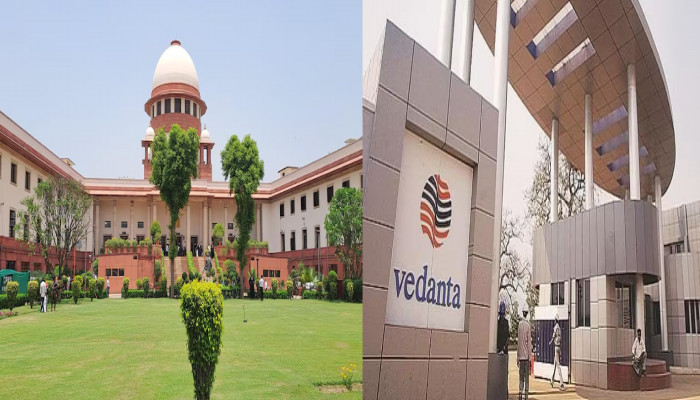SC rejects Vedanta's review plea to reopen Tamil Nadu copper plant
- In Reports
- 05:31 PM, Nov 16, 2024
- Myind Staff
The Supreme Court has rejected a review petition from Vedanta Limited to reconsider reopening its copper smelting plant in Thoothukudi, Tamil Nadu. This decision confirms that the plant, which was shut down in May 2018 over environmental and health concerns, will remain closed.
Vedanta's Sterlite Copper plant was a major producer of copper in India but faced repeated allegations of causing air and water pollution, which harmed local communities. These concerns sparked widespread protests. On May 22, 2018, during one such protest demanding the plant's closure, police opened fire, killing 13 people and injuring many others. Following the public outrage and environmental issues, the Tamil Nadu government shut down the plant later that month.
In August 2020, the Tamil Nadu government decided to shut down a plant due to environmental violations and to protect public health. The High Court supported this decision. Vedanta appealed against the closure, but on February 29, 2024, the Supreme Court rejected their plea, prioritising the health and well-being of local residents. Vedanta then filed a review petition challenging the Supreme Court's February decision. However, on October 22, 2024, the Supreme Court dismissed the review, stating there was no valid reason to reconsider the judgment.
The Sterlite Copper plant's closure is still in place as a result of the review petition being rejected. Vedanta has stated that it intends to investigate additional legal alternatives, such as the potential for submitting a curative petition—a remedy that can be used in extraordinary situations. Significant economic repercussions have resulted from the plant's shutdown, including a decrease in domestic copper production and the loss of jobs for thousands of workers.
A study by Consumer Unity & Trust Society (CUTS) International found that the economy has lost around ₹14,749 crore since the plant's shutdown. The plant directly employed about 5,000 people and indirectly supported 25,000 jobs through its value chain. Its closure has impacted these jobs and disrupted the livelihoods of many who depended on its operations, as reported by The Print and The Hindu Businessline. There have been conflicting reports regarding the environment. The Tamil Nadu Pollution Control Board (TNPCB) reported a notable decrease in the sulphur dioxide levels after the facility was shut down in May 2018, suggesting that the quality of the air has improved.
However, according to 2022 research conducted by the National Institute of Technology in Jamshedpur and the Asian Institute of Technology in Bangkok, there was no discernible difference in the amounts of sulfur dioxide and air quality before and after the plant's closure. A 2022 study by the Asian Institute of Technology, Bangkok, and the National Institute of Technology, Jamshedpur, found that closing the plant did not significantly affect air quality or sulphur dioxide levels.







Comments